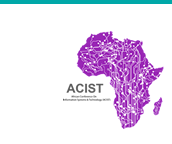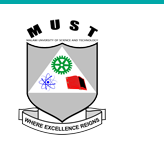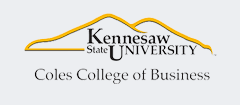Location
Harare, Zimbabwe and Virtual
Start Date
12-9-2024 3:25 PM
End Date
12-9-2024 3:50 PM
Description
Learning Management Systems (LMSs) investments are increasing in response to internal and external factors such as technology and market trends, laws, and regulations. Many LMS implementation initiatives fail despite decades of research on IS success. Challenges faced by sub-Saharan Africa Higher Education Institutions (HEI’s) LMS implementations are becoming context-specific to each institution. Studying implementation success quantitatively has however not provided adequate contextual insights into the complex dynamics of implementation. Research often investigates lecturers and students at the exclusion of other stakeholders. Using Critical Hermeneutics (CH) as a guiding perspective, semi-structured interviews were conducted with decision-makers, administrators, support staff, students, and lecturers at a South African HEI that had recently implemented a new LMS. Key findings indicate that technical support and the first-year migration were well-executed, however a number of stakeholder groups believed that the implementation was top-down and bureaucratic, whereas administrators felt excluded from the project. Meanwhile decision-makers commended the continued executive support. The discontent was indicative of a privileged access to discourse at the exclusion of academics, students and administrative voices and the progressive silencing of dissenting voices. This paper contributes to the literature on LMS implementation at HEI’s through using a qualitative critical perspective.
Included in
Educational Technology Commons, Management Information Systems Commons, Online and Distance Education Commons, Technology and Innovation Commons
Stakeholder Perceptions of a New Learning Management System Implementation at a South African University
Harare, Zimbabwe and Virtual
Learning Management Systems (LMSs) investments are increasing in response to internal and external factors such as technology and market trends, laws, and regulations. Many LMS implementation initiatives fail despite decades of research on IS success. Challenges faced by sub-Saharan Africa Higher Education Institutions (HEI’s) LMS implementations are becoming context-specific to each institution. Studying implementation success quantitatively has however not provided adequate contextual insights into the complex dynamics of implementation. Research often investigates lecturers and students at the exclusion of other stakeholders. Using Critical Hermeneutics (CH) as a guiding perspective, semi-structured interviews were conducted with decision-makers, administrators, support staff, students, and lecturers at a South African HEI that had recently implemented a new LMS. Key findings indicate that technical support and the first-year migration were well-executed, however a number of stakeholder groups believed that the implementation was top-down and bureaucratic, whereas administrators felt excluded from the project. Meanwhile decision-makers commended the continued executive support. The discontent was indicative of a privileged access to discourse at the exclusion of academics, students and administrative voices and the progressive silencing of dissenting voices. This paper contributes to the literature on LMS implementation at HEI’s through using a qualitative critical perspective.



